Would you like to reduce your carbon footprint when traveling? Or help in a positive way as you travel the globe? This post’s got a simple list of ideas to help you travel greener with 7 Quick tips for ecotravel.
Whether you plan to travel to Costa Rica, New Zealand, London, or any national park around the world, there are a few easy ways that you can be a responsible traveler. The green and sustainable movement is here, jump on board!
Table of Contents
Why Ecotravel?
Ecotourism is essential for the future of the environment. People inherently love to explore and experience new cultures, people, and destinations. It’s in our genes.
But the way that we are going, with nonrenewable energy as the primary source of fuel (for travel and shipment of goods) and non-sustainable production of waste and goods, we’re not going to be able to enjoy travel for much longer. The places we want to visit will be overrun with pollution and will have lost their cultural identity.
Ecotravel is about consideration and action (also called “Green Travel” or “Responsible Travel”). Have the adventure, see the beautiful nature around the world, but do so in an environmentally friendly way.
Ecotourism vs. Mass Tourism
Over-tourism and mass tourism are already destroying many popular destinations around the world. Places are being forced to close the doors on potential tours & income. Unknowingly tourism is having damaging effects on the local populations. The idea behind ecotravel is to minimize our impact on the environment and the local population.
Waste and Plastic
We live in a plastic driven world. There’s plastic water bottles, takeaway containers, straws, bags, and more. Each little bit of plastic that you use can take thousands of years to degrade. In fact most of it will never actually degrade completely. That means that virtually every piece of plastic that was ever made still exists in some shape or form.
You might be thinking, what difference will I make? It’s too hard.
To be honest – it’s really not that hard. And every little positive thing you do to help does make a difference. This quick ecotravel tip guide will show you things you can do at home, on a tour, in a hotel, or out and about to reduce your impact and waste while traveling. A great way to start is to say no to plastic.
Here are 8 quick ecotravel tips that are easy to do, will save you money, and help leave the earth a better place!
1. Avoid single use plastics
We live in a plastic driven world. There’s no doubt about it. Unfortunately, it’s suffocating the planet. Bottles, containers, straws, and shopping bags are everywhere. The worst part is, that plastic never really degrades. So it will always be here (in some shape or form).
The first step to traveling greener is to replace single-use plastic items with reusable ones. With a little preparation, this is easy to do. It takes very little space in your backpack, and will reduce your carbon footprint significantly! Saying no to plastic is the way forward!
Ask for no straw with your drink or purchase a reusable one
I love drinking out of straws, so when I found out that 500 million plastic straws are used every day in America (and that’s enough to circle the earth twice), I decided to immediately stop accepting straws in my drinks. With so many reusable straw options available, it’s easy to be plastic-free. Just make sure to get a straw cleaner so you can keep it hygienic.
» Get your reusable straws here
Use a reusable water bottle to stay hydrated on the go
Did you know that one million plastic bottles are bought every minute around the world? Don’t add to this, start using reusable bottles. They are great – you can get them in every shape, form, and size. My personal favorite is the Hydroflask – it keeps you water cold for hours!
» Get your reusable water bottle here
Bring a reusable, compact bag on day trips
These are super handy when you are out and about and need to get a few things from the shops. We have a couple of cotton mesh tote bags that take up very little space and can expand to fit your groceries into.
» Get your reusable, compact bag here
» Click here for the best alternatives to plastic bags
Keep a portable cutlery set in your bag
We like to travel cheaply, buying oats, cereals, and fruit from a shop instead of paying for lunch when traveling. You can purchase a travel cutlery set (we love bamboo sets), or bring your own silverware from home when you are travelling.
» Get your bamboo cutlery set here
» Click here more tips on how to avoid single use plastic
Are you in Australia or NZ? Check out the best 5 zero waste products, here!
2. Eco-friendly toiletries
This is where you need to start becoming conscious about your purchases and learn to eco shop! Toiletries can cause a lot of harm to the environment. Whether its plastic packaging or harmful ingredients, a lot of it ends up in the ocean – which ends up in the food chain. We’ve been making the switch to organic and natural products as each of our usual products run out.
Opt for a shampoo bar or natural ingredient shampoos
Shampoo bars are great for ecotravel! You don’t need to carry all those liquids in plastic bottles and they last a really long time. Ethique is our favorite zero waste shampoo brand, as they are plastic-free and palm oil free.
Menstrual cups for the ladies
The best part about them is that you don’t have to fill half your backpack with your monthly tampons/pads when you ecotravel. It can take a little getting used to, but it really does reduce your waste, significantly! It’s also way cheaper for those on a budget!
Organic sunscreen that’s safe for the reefs
Most of the common (big brand sunscreens) include the ingredient “oxybenzone” which is poisonous to coral reefs. When choosing a sunscreen, the fewer ingredients, the better. The most important ingredient to protect yourself from the sun’s rays is Zinc Oxide. Apart from that, there are a lot of “fillers” used to create the volume. Check that you’ve got the Zinc and then the least amount of “fillers” as possible. There are some brands that use nice ingredients like coconut oil (which is a natural moisturizer and helps to spread the Zinc!).
Bamboo toothbrush
Bamboo toothbrushes are great because they are biodegradable (except for the bristles). Plastic toothbrushes end up sitting in landfills (if they don’t make it to the sea). Pair a bamboo brush with a zero waste toothpaste and you will minimize the plastic loading on the environment and reduce your waste while traveling.
Natural makeup
I’m really loving natural makeup. I have a mascara and eyebrow pencil made out of almond oil, cheek and lip tint made out of beetroot pigment, and a mineral powder foundation. What more do you need? They look great, are safe for your body and the environment. That’s a win.
Safety razors
These can also take a little while to get used to, and you might feel like you are a 13-year-old girl again, but they don’t use plastic like the “throwaway” razors.
Essential oils
These can be used these as mosquito repellents, sinus clearers, insect bite relief, among so many other uses. Tea tree, lavender and peppermint oils work great as mosquito repellents (make sure you mix with some coconut oil), as they don’t contain any of the nasties that can be harmful to your body (e.g. DEET). They are a perfect addition to your ecotravel kit!
» Click here to learn more about Eco Friendly Toiletries
3. Conserve water, save energy
A lot of people forget about their energy use when they are traveling (maybe because it’s not their own home and they’re not paying the bills), but the earth still pays. Yes, you won’t have to pay the electricity bill at the end of the month, but it doesn’t mean the earth will not pay for the energy used.
Turn off the lights and the AC when you leave the room. Be mindful of how much electricity you are using and whether it’s really necessary. Try Luci lights, they are compact solar lights you can bring on any ecotravel adventure, and they can charge your phone!
Conserve water by having shorter showers. An 8-minute shower can use around 65 liters of water. That’s enough drinking water for a whole month, down the drain.
Try eating more Plant-based
There is a huge water “footprint” connected to our food. Beef and dairy have a large carbon and water footprint. By switching to a plant-based diet you will significantly reduce your negative impact on the world as you explore it.
4. Recycle and Pick Up Some Plastic
Did you know that one million plastic bottles are purchased every minute around the world? Let’s not add to this -start using reusable bottles!
We go to the beach most days and pick up 3 pieces of trash. If we did that for a year we’d have collected about 1,500 pieces! Think about the progress if we all did it together! #take3forthesea
Recycle where you can
It’s easy to ask locals or to Google a destination to find out whether they have recycling centers or bins. But, recycling is still a developing concept in many places around the world.
If you do use plastic abroad and there are no recycling facilities, take your rubbish with you. The plastic you take in equals plastic you take out. Ecotravel is all amount minimizing impact, say no to plastic!
Pick up some plastic from somewhere nice, to keep it nice!
So many beautiful beaches around the world are being suffocated by plastic. A simple act of picking up a few pieces each time can help. And if you want to be part of the movement – upload your image of trash to the #take3forthesea sites. This is an amazing movement that is growing and encouraging more positive action around the world. Its a great way to connect with other people interested in ecotravel too! Check out the site here for more information Take 3 for the sea.
5. Don’t Encourage Paid Animal Experiences
It can be tempting to cuddle up next to an elephant, or a tiger in Thailand. But do you know what’s happened (behind closed doors) to get the animals so tame and docile? There is a lot of trauma and abuse that goes into the animal tourism industry so that people can get up close and personal experiences with wild animals.
Do your research before you ecotravel
Are the animals in their natural habitat or held captive? There are many websites out there that will give you advice on where and what to visit e.g. Spana
Do not touch wild animals
Let them come to you if they are curious, make sure they are free to move. Part of ecotravel is realizing that nature can be seriously impacted by simply touching it.
Support ethical animal sanctuaries
If you can’t see the animal in the world, there are some great sanctuaries around the world that protect and encourage the rehabilitation of animal species. Because when you see an animal in natural habitats (a sanctuary is a protected natural habitat) the animal is really looking like and acting like the animal should. That’s what makes it so great to see. When you see an animal out of context (their environment) in an awkward/unnatural pose – you’re not even seeing the animal in a sense, just a shell. Here is a site that shows many variations of sanctuaries around the world – Sanctuary Federation.
Don’t purchase ivory or other animal “trophy” products
This encourages poachers and a downward spiral of species extinction. It is a supply and demand issue. If there is no longer a demand the supply will stop.
» Click here to learn more about animal tourism
» Click here to find a good animal sanctuary near me
6. Careful Clothing Selection
What you might not be aware of is that the fashion industry has a huge impact on the environment. Emitting large volumes of greenhouse gases each year to produce “fast fashion” clothing items, the fashion industry is actually one of the biggest polluters in the world.
With the mentality that it’s cheaper to buy a new item than fix an existing clothing item, people are simply buying more. This is causing more pollution and more waste. Once you ecotravel you realize that you really don’t need much on the road. Here are some quick tips to get your fashion for the road a little bit greener.
Shop at thrift stores
We like shopping at vintage stores, you can find some great pieces, and it’s cheap. Likewise, when you’re traveling and want to get rid of some clothing, check out if there is a local thrift store to donate at or ask around for people in need! This ecotravel tip has been super useful to me over the years. I can buy something second hand, use it, and then return it to the donation box to save space in my bag.
Buy clothes made from sustainable fibres and dyes
If you like buying “unworn” clothes then look for brands that are made from sustainable or recycled fibers. REPREVE is a company making plastic fibers from bottles – various brands around the world are using the fibers in their own products! Check out which ones, you’d be surprised.
Try out convertible travel clothing
These are great for traveling, I have a few pieces from Kameleon Rose, 6 items = 100 different outfits! It takes up less space in your bag and therefore has less of a footprint on the environment! It’s the perfect type of clothing for ecotravel!
» Click here to learn more about sustainable fashion and the top, current brands
Choose Ethical Brands
There are more and more amazing ethical brands out there. These are focused on transparency in the workplace.
Brands like Hiptipico in Guatemala that promote positive social impact for the local, women artisans.
7. Choose Eco Accomodation
Staying in eco-conscious locations can significantly reduce your travel footprint. There are more and more amazing eco alternatives popping up around the world, offering unique and incredible experiences. No matter what budget you are on, there is an ecotravel option for you.
Stay at Eco Hotels or Resorts
There are some amazing eco resorts popping up around the world. These places are designed, built and operated with the environment and local culture in mind. In many cases, they have done a lot of the ecotravel planning for you.
Try staying in Hotel & Resort Alternatives
Most people’s first thought when they look to book a vacation or a trip is to search for a hotel. But nowadays, there are so many amazing alternatives out there. Hotels and resorts are generally not good at running conservatively on power and create a lot of waste. They have to constantly have food in the fridges and running air-conditioning in hallways. That’s just not great a great use of resources. There are other places that you can stay, outside of a hotel, where you can have equally, if not better experiences. Try:
- Home Stays – including AirBnb, Couch Surfing, Housesitting
- Glamping/Camping – Glamping can be luxury and environmentally low impact!
- Volunteering Trips – you can volunteer on an organic farm or a campsite or a research centre. In return, you normally get food and board, as well as a rewarding experience
- Live Aboard – Sailing Boats are a great way to get around & Van Life is the new craze for national travellers
Ecotravel is about minimising impact. Staying greener can have a huge impact and reduce your carbon footprint while on the road. Picking places with solar heating and power is a simple but effective way to travel greener.
»Click here to learn more about eco resorts.
»Click here to learn how to find eco accommodation.
Ecotravel can be done on any budget
There’s a new wave of luxury ecotravel destinations and hotels. Some of the budgets for these locations are getting above many people’s affordable travel budget. But, you really don’t have to stay in luxury. In fact, it’s almost easier to ecotravel on a lower budget. When you know where to find eco accommodation & implement some of the sustainable fashion tips, ecotravel becomes very affordable.
Check out these guides for eco travel inspiration!
Learn how to use travel hashtags to share your content!
Ecotravel Free Ebook Download
If you want to know more about eco travel, get more ideas and useable information in an ebook format, check out the Free Eco Travel Ebook.
Like This Article? Pin it!
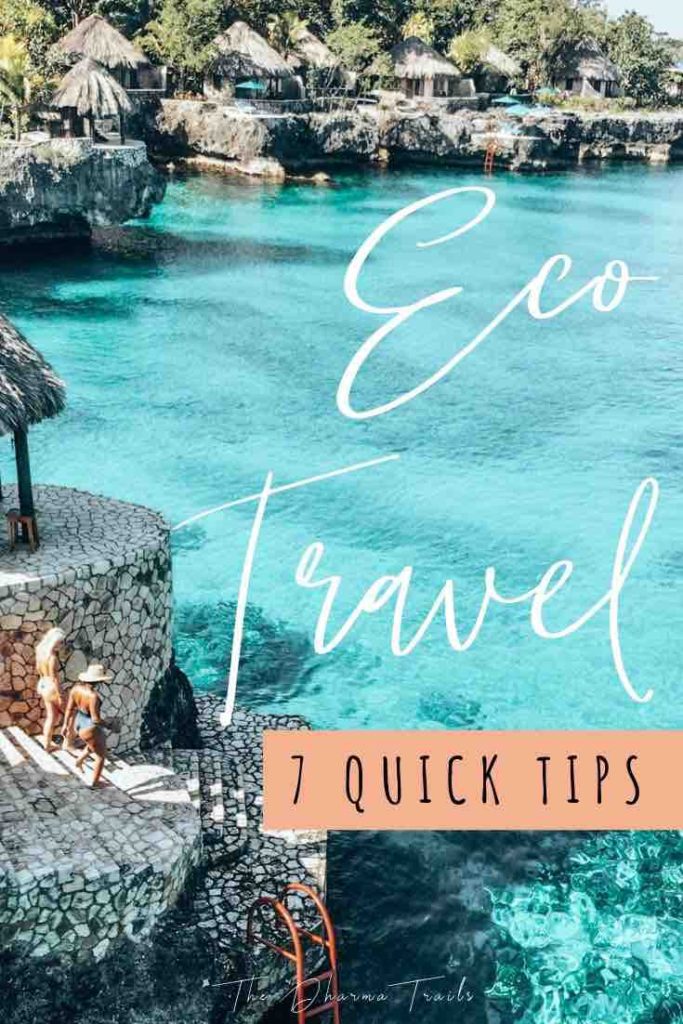
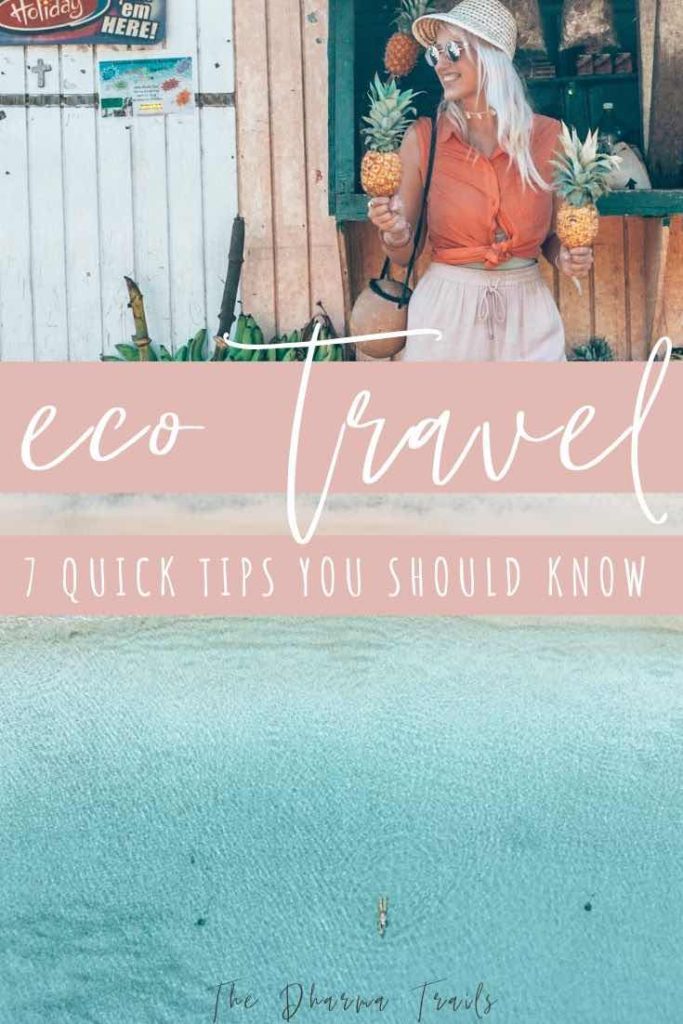
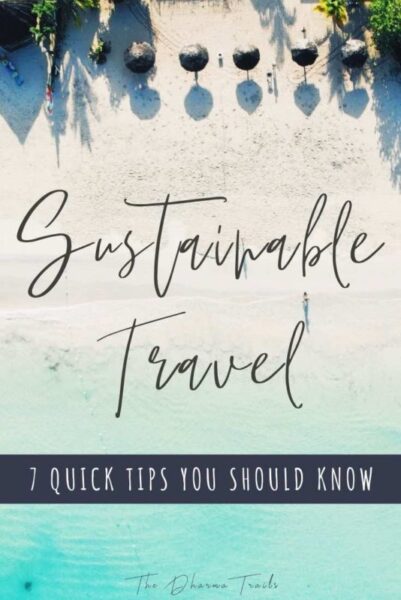

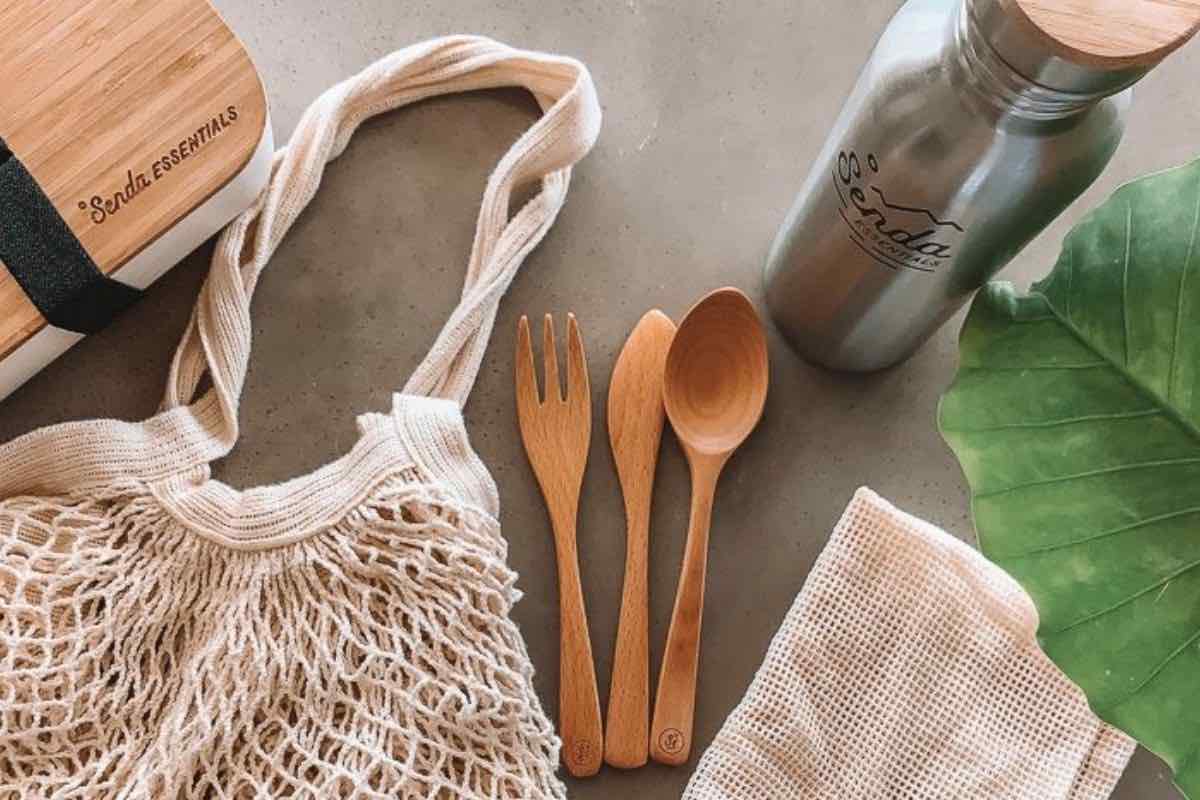


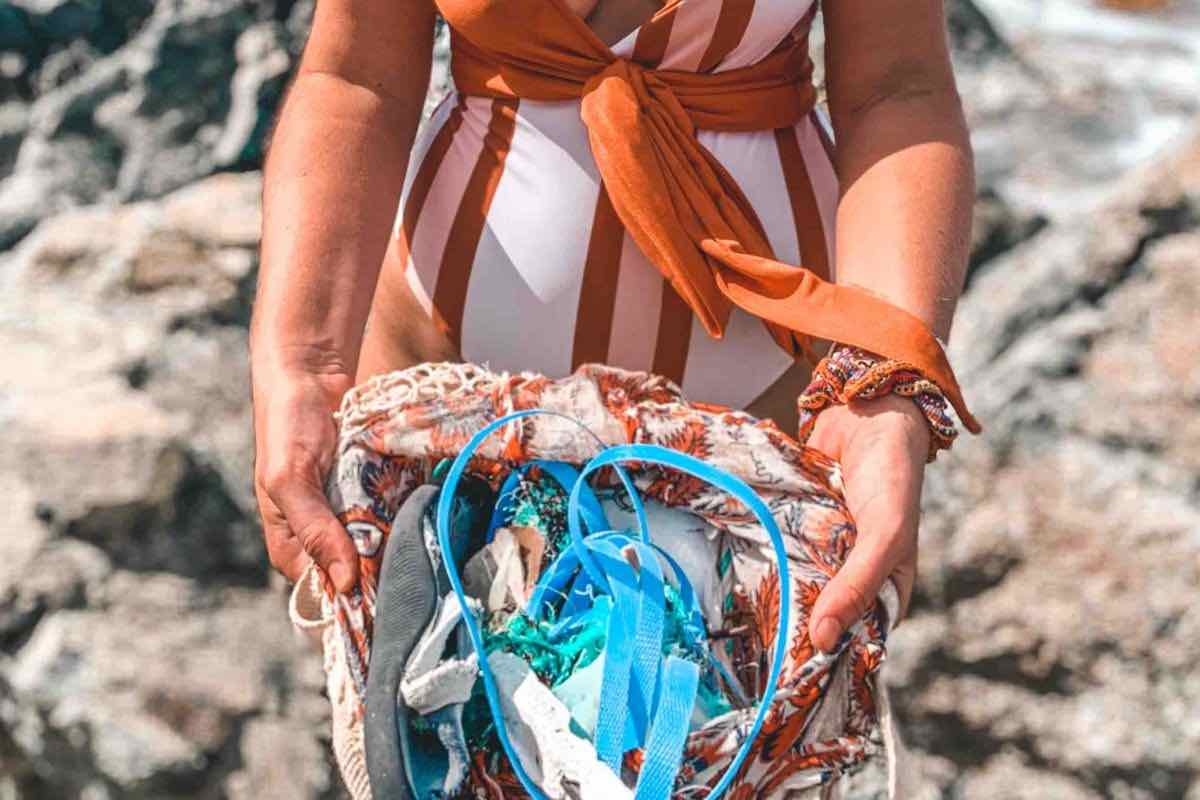

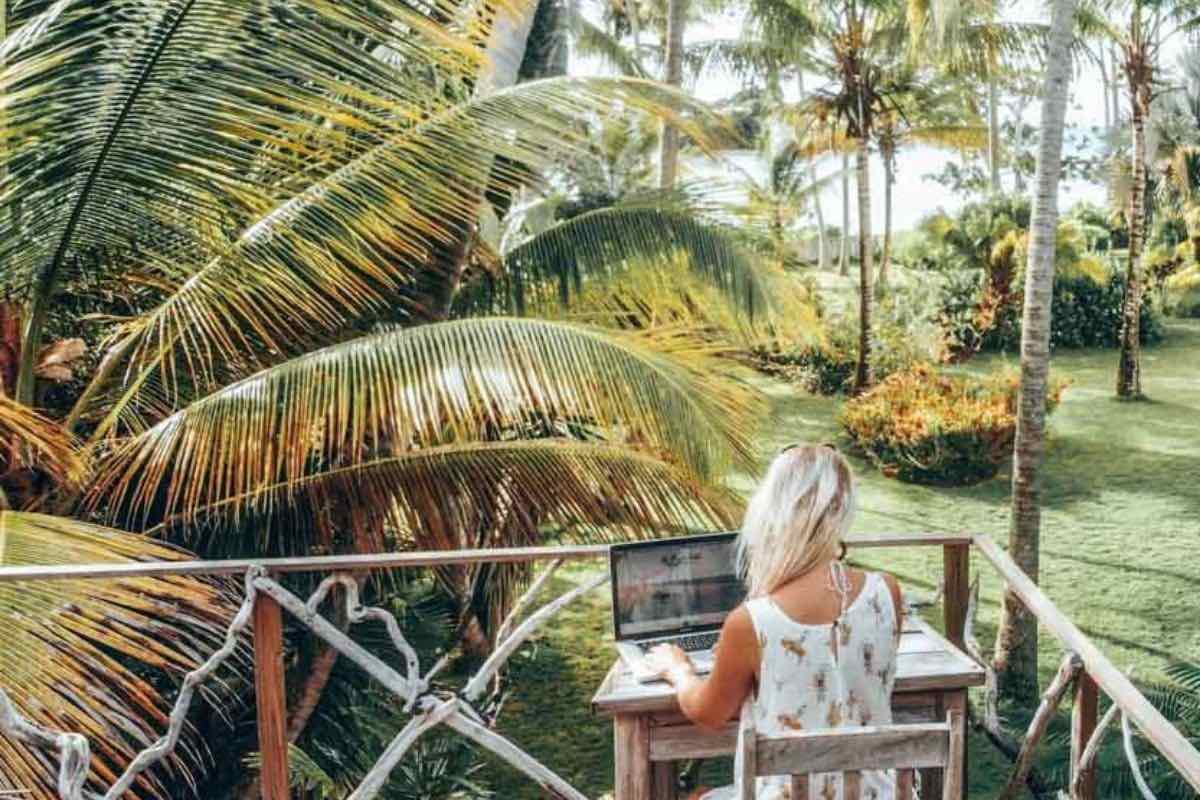
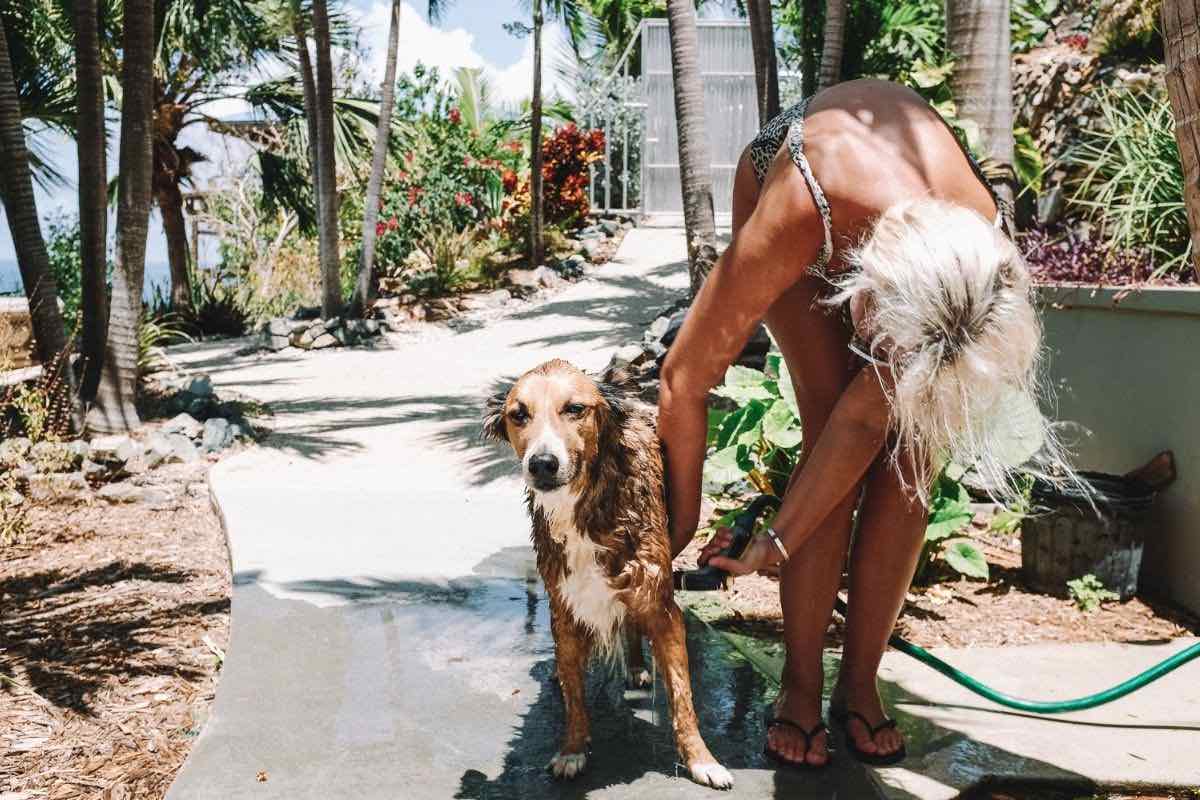
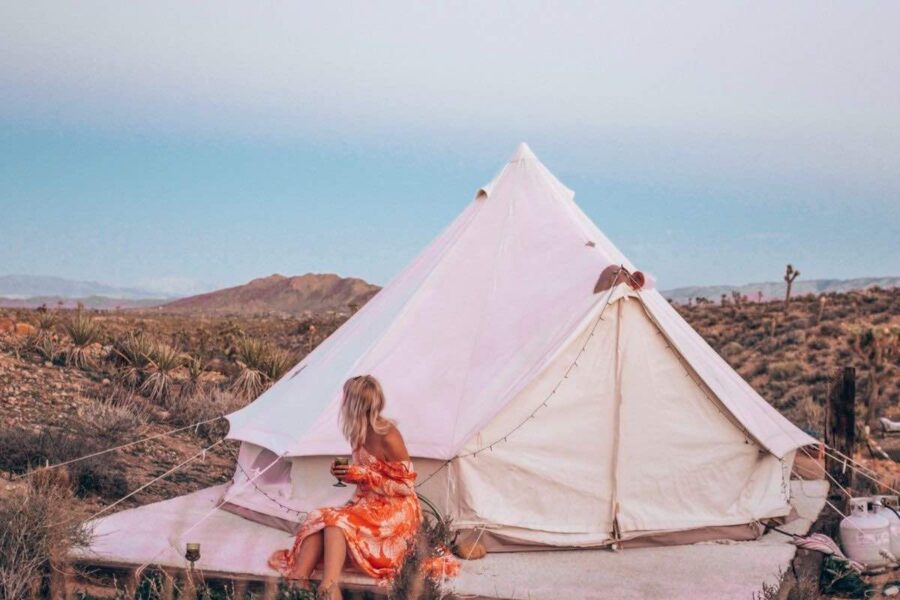
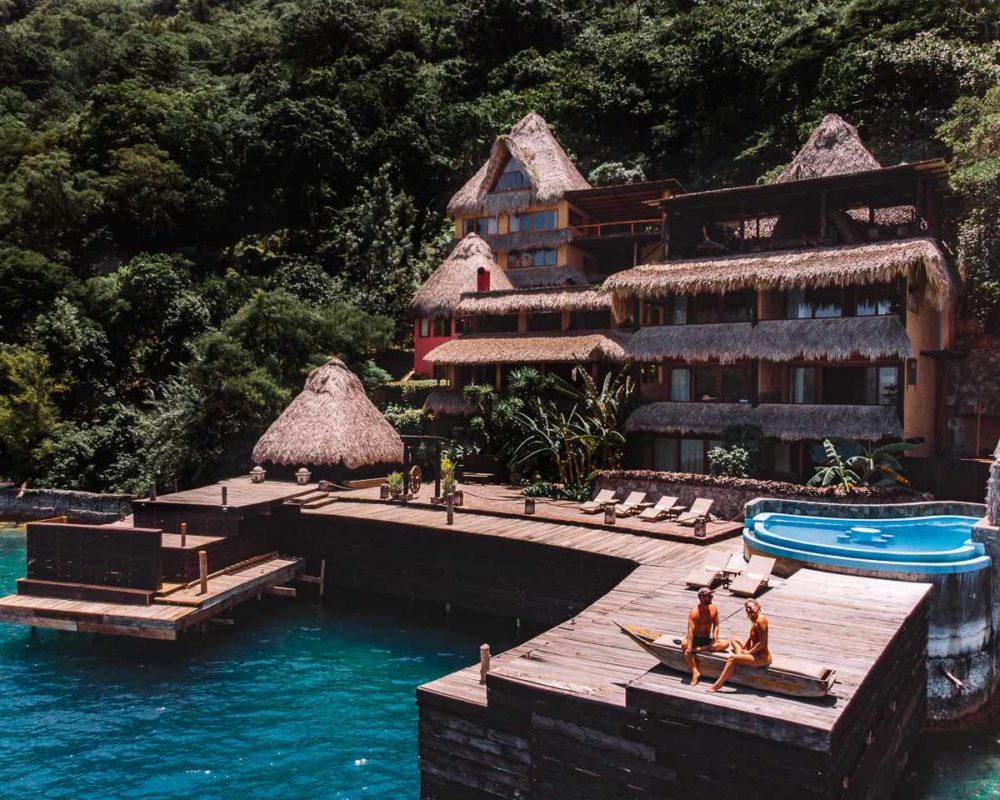
Love this guys! It’s awesome that it’s getting easier (and more affordable) to find eco-friendly
Love this guys! It’s awesome that it’s getting easier (and more affordable) to find eco-friendly accommodations and products everywhere you go! We need to pick up those shampoo bars, we’ve been looking for decent hair products forever!
Thanks!
Shampoo bars have been a lifesaver…for Viv mostly. I can live with salty hair for the most part.
We’re finding some great reusable and eco friendly products in Guatemala too which is amazing.